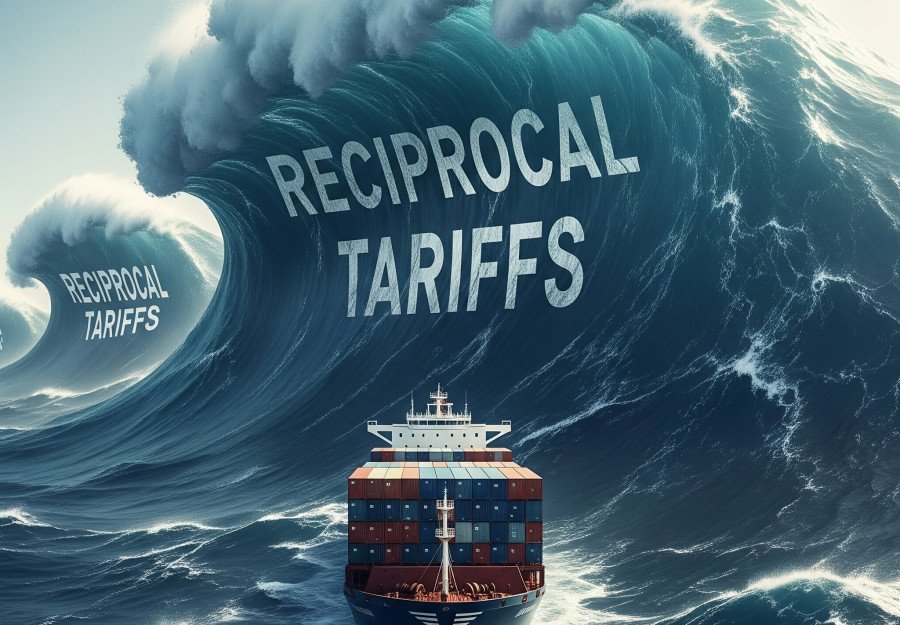U.S. to Implement New Tariffs on Indonesian Imports Over Trade Imbalance
U.S. to Implement New Tariffs on Indonesian Imports Over Trade Imbalance
- 08 Jul 2025, 13:50
U.S. to Implement New Tariffs on Indonesian Imports Over Trade Imbalance
WASHINGTON D.C. – In a significant escalation of his administration's assertive trade policies, President Donald Trump has directly notified Indonesian President Prabowo Subianto that the United States intends to impose a 32% "reciprocal" tariff on "any and all Indonesian products" entering the U.S. market, effective August 1, 2025. The tariff threat, outlined in a letter from Washington dated July 7, 2025, aims to rectify what Mr. Trump terms a "large and persistent annual U.S. merchandise trade deficit" with Indonesia.
The letter, addressed personally to President Subianto in Jakarta, asserts that the trade relationship between the two nations, while demonstrating strength, has become "unfavorable" to the U.S. Mr. Trump explicitly blames Indonesia's "Tariff, and Non Tariff, Policies and Trade Barriers" for causing what he calls "these unsustainable Trade Deficits against the United States," which he deems a major threat to U.S. economic and national security.
The Calculus of "Reciprocal" Tariffs
The 32% figure, as stipulated by Mr. Trump, is presented as "far less than what is needed to eliminate the Trade Deficit disparity" with Indonesia. The use of "reciprocal" here indicates a strategic intent by the U.S. to rebalance the trade ledger through duties that proportionally reflect what Washington perceives as unfair burdens on its exports to Indonesia. This approach is consistent with Mr. Trump's long-held view that trade must be "more balanced, and fair."
A particularly salient point in the letter is the implicit threat of further escalation. Mr. Trump warns that should Indonesia choose to raise its own tariffs in retaliation, "then, whatever the number you choose to raise them by, will be added onto the 32% that we charge." This clause presents a difficult dilemma for Jakarta: a tit-for-tat response risks exacerbating the situation and potentially leading to higher U.S. duties. The letter also unequivocally states that goods transshipped to evade the higher tariff will be subject to the same levy.
Incentives and Global Implications
Amidst the punitive measures, Mr. Trump extends a clear incentive: "there will be no Tariff if Indonesia, or companies within your Country, decide to build or manufacture product within the United States." This policy directly aligns with the "America First" agenda, signaling a strong push to incentivize foreign investment and manufacturing to relocate to the U.S. He promises "quick, professional, and routine" approvals for such proposals "in a matter of weeks."
For international readers, this move underscores the Trump administration's continued reliance on tariffs as a primary negotiating tool in its bilateral trade relationships. Indonesia, as a significant economy in Southeast Asia, provides a notable case study, and such actions could set a precedent or send a signal to other U.S. trading partners running substantial surpluses with Washington. It reaffirms the U.S. priority of addressing perceived unfair trade deficits, even at the risk of disrupting established global supply chains.
Implications for Indonesia and Beyond
For Indonesia, the 32% tariff poses a considerable challenge to its export sectors, which are heavily reliant on the U.S. market. Products ranging from textiles and footwear to rubber, seafood, and agricultural goods could face significant hurdles in maintaining price competitiveness. Indonesian exporters will be compelled to swiftly re-evaluate their strategies, explore alternative markets, or consider restructuring their supply chains.
The government under President Prabowo Subianto faces a complex diplomatic and economic task. Options could include intense negotiations to "open heretofore closed Trading Markets" as suggested by the U.S., lodging a dispute with the World Trade Organization (WTO), or seriously evaluating the U.S. offer to incentivize in-country manufacturing. The letter concludes with the U.S.'s anticipation of working with Indonesia as a "Trading Partner for many years to come," offering potential tariff adjustments "upward or downward, depending on our relationship with your Country." However, the assurance that Indonesia will "never be disappointed" by the United States must be weighed against the immediate economic realities of the impending tariffs.
This latest development in U.S. trade policy suggests that global trade tensions remain a significant factor, and nations with large trade imbalances with the United States should remain prepared for ongoing diplomatic and economic pressures. (geo_rob)


